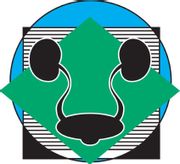
Many parents have children who go through a period of bed-wetting, which can be bothersome and embarrassing. At Medical Center Urology in High Point, NC, urology specialists counsel parents and treat children who face these challenges. Here, they explain the causes of and solutions for this common childhood condition.
Bed-Wetting Causes & Solutions
What Is It?
Bed-wetting occurs when sleeping individuals urinate involuntarily. This condition is called nocturnal enuresis or nighttime incontinence. Parents should not be concerned if a child age 7 or under experiences bed-wetting; it’s still normal at that age due to the continuing development of nighttime bladder control.
Causes of Nighttime Incontinence
 While researchers and urology specialists have not established a sole cause of childhood bed-wetting, scientists have identified specific genes that lead to delayed nighttime bladder control. If one of a child’s parents was a bed-wetter, there’s a good chance the child might be prone to it.
While researchers and urology specialists have not established a sole cause of childhood bed-wetting, scientists have identified specific genes that lead to delayed nighttime bladder control. If one of a child’s parents was a bed-wetter, there’s a good chance the child might be prone to it.
Bed-wetting may occur due to a small bladder or a hormonal imbalance when children do not produce enough anti-diuretic hormone (ADH) to delay their nocturnal urine production. A urinary tract infection, diabetes, or immature nerves that interfere with the child’s ability to recognize a full bladder during a deep sleep can lead to nighttime incontinence.
Bed-Wetting Diagnosis & Treatment
As their bodies mature, most children grow out of wetting their beds. Pediatricians and urology specialists may order urine testing and other tests to rule out diabetes, urinary tract infections, and underlying causes of nighttime incontinence, such as constipation or sleep apnea. Bed-wetting treatment options include lifestyle and dietary changes, moisture alarms, and medication.
Urology specialist Dr. Richard Puschinsky and his medical team offer compassionate counsel and effective treatment options for parents and children coping with bed-wetting. To schedule an appointment at Medical Center Urology in the Piedmont Triad region, call (336) 882-0220. Visit the website to learn more about the practice.
About the Business
Have a question? Ask the experts!
Send your question

